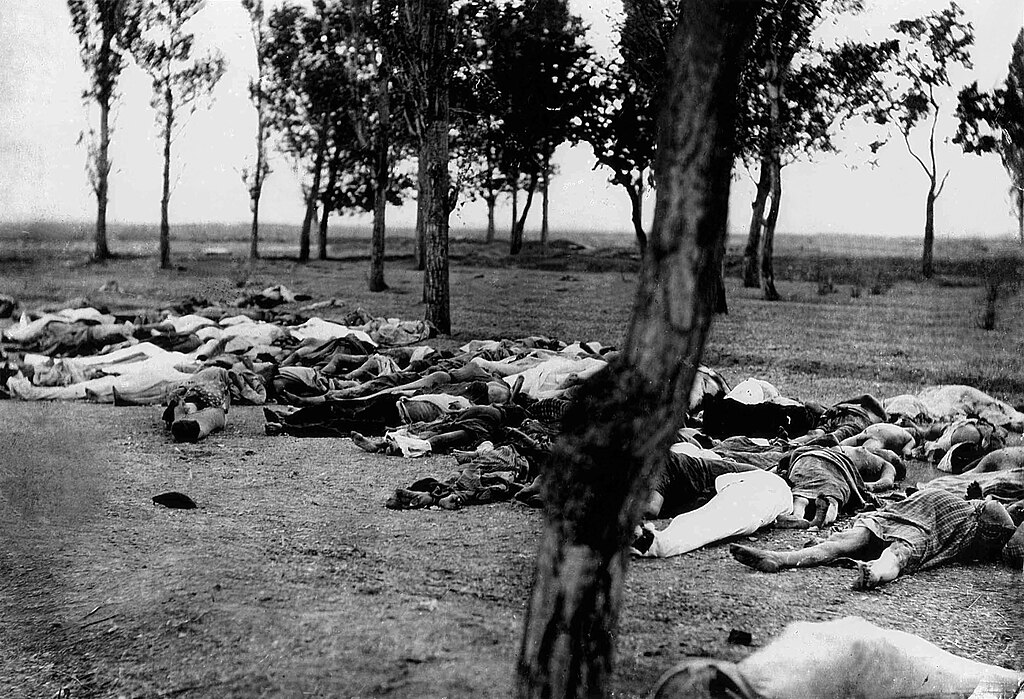On April 24, 1915, the Ottoman Empire initiated a systematic campaign of deportation, mass killings, and forced marches that would culminate in the Armenian Genocide, one of the first modern genocides. That day, hundreds of Armenian intellectuals, community leaders, and professionals were arrested in Constantinople (modern-day Istanbul), marking the start of a brutal effort to eliminate the Armenian population from the empire, claiming around 1.5 million lives.
The Ottoman government, under the leadership of the Young Turks, considered their Armenian population to be a security risk during World War I. The Ottoman government used wartime conditions to execute its premeditated plan through accusations that Armenians supported Russia. The Ottoman government initiated widespread arrests of Armenian leaders.
During their deportation through the Syrian desert, Armenians walked for hundreds of miles before ending up without food or water. The journey took a heavy toll on its victims since multiple individuals died because of mass killings, severe starvation, and disease conditions. The survivors of these atrocities found themselves sent to concentration camps, where the authorities maintained harsh conditions on purpose. During the time of conflict, women and children endured mistreatment while dozens of communities were annihilated.
While foreign diplomats and missionaries documented the atrocities, global powers largely failed to intervene. The term “genocide” was later coined by Raphael Lemkin, who cited the Armenian case as a key influence. Despite overwhelming evidence, Turkey still denies the genocide, calling it a wartime tragedy with casualties on all sides.
Today, the impact of the genocide is commemorated in several powerful ways:
- Memorials stand in Yerevan, Beirut, and Los Angeles.
- Over 30 countries, including the U.S. (since 2021), officially recognize the genocide as a historical fact.
- Survivors’ descendants continue advocating for justice and recognition.
The genocide’s shadow persists today in ongoing tensions between Armenia and Turkey, proving how historical wounds remain unhealed without acknowledgment.

